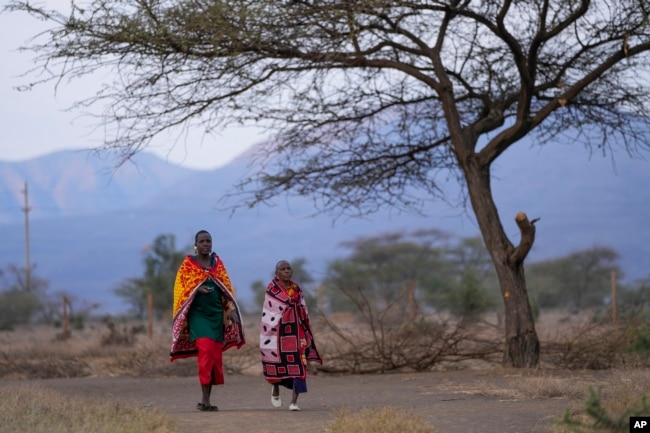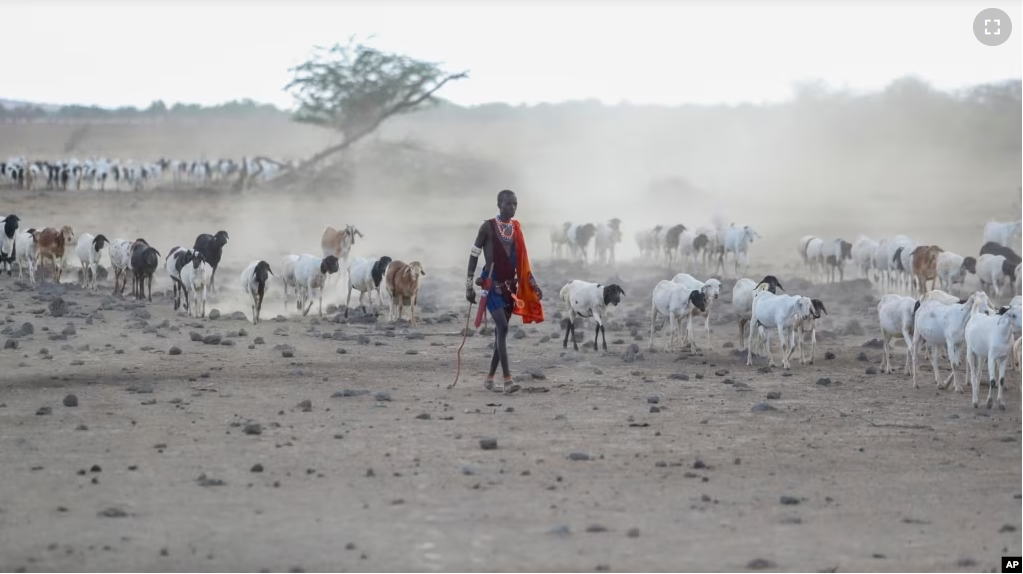An American rights group says Tanzania is seizing animals from herders because it wants to bring more foreign visitors to the northern part of the country.
The Oakland Institute, a research group based in Oakland, California, recently reported on the issue. The group said Tanzanian officials are seizing the livestock of ethnic Maasai herders. The goal of the officials is to clear the area for increased tourism in the Ngorongoro Conservation Area.
The rights group says the government forcibly seized 5,880 cattle and 767 goats and sheep from the Maasai people in November and December. Government officials are demanding that owners pay heavy fines. People who cannot pay have their livestock taken and sold to other people.
Anuradha Mittal is the executive director of the Oakland Institute, one group following the issue. She told the Associated Press that: “Livestock is central to the Maasai culture and livelihoods.” She said: “Losing cattle is therefore catastrophic for them. With this new tactic the government’s goal is clearly to drive them away from their ancestral lands.”

The government says the relocation will increase safari tourism and the hunting of lions, elephants and other big animals to pay for environmental and economic development. It says the displacement is “voluntary” and that the Maasai are semi-nomadic, meaning they are used to moving around a lot.
Mittal said the government’s statements are not true. She said officials continue to make tourism money more important than “everything else, including lives.”
Rights groups have accused the government of denying the Maasai the use of health services, land, water and salt licks—places where animals eat minerals. They say this is being done to force out the Maasai.
The Ngorongoro Conservation Area is recognized by the United Nations as a UNESCO World Heritage area. The Maasai villages occupy a small part known as the Loliondo commune.
In June of last year, rights groups accused the Tanzanian government of using violence against the Maasai people. There was international criticism of the relocation program but a court in the area ruled in favor of the government.
The African Commission on Human and Peoples’ Rights is currently in Tanzania seeking information on the human rights situation.
Salangat Marko is a herder in the Loliondo area. He said he is worried about the future of his family. He said: “I have cows with no grass or water. Herders intimidated and beaten…where do we go and what do we feed our children?”
I’m Mario Ritter Jr.
Wanjohi Kabukuru reported this story for the Associated Press. Mario Ritter, Jr. adapted it for VOA Learning English.
_______________________________________________________________
Words in This Story
herder –n. a person who keeps farm animals like cows and sheep
tourism –v. the activity of traveling to other places for pleasure or the industry that serves people who travel for such reasons
catastrophic –adj. something terrible or disastrous
tactic –n. a method used toward a goal
relocate –v. to move or to be moved from a place for a specific reason
safari –n. a trip to see or hunt animals, especially in Africa
intimidated –adj. to be threatened with violence or loss
